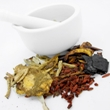Bing gan tang
Bing gan tang
Natural Standard Monograph, Copyright © 2013 (www.naturalstandard.com). Commercial distribution prohibited. This monograph is intended for informational purposes only, and should not be interpreted as specific medical advice. You should consult with a qualified healthcare provider before making decisions about therapies and/or health conditions.
Related Terms
Fuzheng jiedu tang, jianpi wenshen recipe, traditional Chinese herbal medicine, traditional Chinese medicine, TCM, Chinese medicine, yi zhu decoction.
Background
Bing gan tang is a Chinese herbal formula, which may have a possible role in improving chronic hepatitis when taken in combination with other agents. Hepatitis is a disease that causes inflammation of the liver. It is carried and passed to others through blood or sexual contact. Also, infants born to infected mothers may become infected with the virus.
There is little available evidence of the safety and efficacy of Chinese herbal formulas in the United States. However, Chinese herbal experts have used these therapies for thousands of years with success in individuals with certain constitutions.
Theory/Evidence
In a review of 13 randomized trials (N=818), which evaluated 14 medicinal herbs, the herbal mixture of bing gan tang and interferon-alpha was found more effective at treating hepatitis C (HCV RNA) than interferon-alpha alone. However, the results do not appear to be significant, and the authors conclude that more studies are needed to confirm the efficacy of any combination remedy.
A positive HCV RNA indicates the hepatitis C infection. A higher viral load may not necessarily be a sign of more severe or more advanced disease, but it does correlate with likelihood to respond to treatment. HCV RNA tests can also be used to monitor response to hepatitis C treatment. For example, if the viral load decreases during treatment, this suggests that treatment is working and should be continued. Conversely, if the viral load remains the same, it suggests that the patient is not responding to treatment.
The ALT test is a blood test that measures levels of alanine aminotransferase (ALT), a liver enzyme that is produced in higher amounts when the liver is inflamed. High ALT levels can be a sign of hepatitis C, but other conditions can also cause an increase in ALTs.
Safety
The U.S. Food and Drug Administration does not strictly regulate herbs and supplements. There is no guarantee of strength, purity or safety of products, and effects may vary. You should always read product labels. If you have a medical condition, or are taking other drugs, herbs, or supplements, you should speak with a qualified healthcare provider before starting a new therapy. Consult a healthcare provider immediately if you experience side effects.
The quality of most of these studies done with above Chinese herbal medicine was quite poor, and there have also been many incidents when Chinese herbs appear to have caused liver damage. Therefore, bing gan tang should only be used under the supervision of a physician.
Author Information
This information has been edited and peer-reviewed by contributors to the Natural Standard Research Collaboration (www.naturalstandard.com).
Bibliography
Natural Standard developed the above evidence-based information based on a thorough systematic review of the available scientific articles. For comprehensive information about alternative and complementary therapies on the professional level, go to www.naturalstandard.com. Selected references are listed below.
Liu J, Manheimer E, Tsutani K, et al. Medicinal Herbs for Hepatitis C Virus Infection: A Cochrane Hepatobiliary Systematic Review of Randomized Trials. Amer Jl of Gastroenterol. 2003;98(3):538. View Abstract
Public Health Agency of Canada. www.phac-aspc.gc.ca
Verucchi G, Calza L, Attard L, et al. Acute hepatitis induced by traditional Chinese herbs used in the treatment of psoriasis. J Gastroenterol Hepatol. 2002;17:1342-1345. View Abstract
Copyright © 2013 Natural Standard (www.naturalstandard.com)
The information in this monograph is intended for informational purposes only, and is meant to help users better understand health concerns. Information is based on review of scientific research data, historical practice patterns, and clinical experience. This information should not be interpreted as specific medical advice. Users should consult with a qualified healthcare provider for specific questions regarding therapies, diagnosis and/or health conditions, prior to making therapeutic decisions.
Updated:
March 22, 2017
